
Marketing Communications BA(Hons)
Study marketing communications in a dynamic studio-based environment
Course overview
Are you driven by ideas and eager for a more creative take on marketing? As well mastering the fundamentals that underpin any great marketing campaign, you’ll be hands-on in our studios from the start to put theory into practice – working with real briefs and brands, in workshops and on group projects. From problem solving and strategic planning to an understanding of ethical, sustainable practice, you’ll graduate with core skills, creative fluency and a solid portfolio of marketing work.
You will:
- Develop a strong marketing portfolio, showcasing your creative problem-solving and strategic thinking skills
- Gain knowledge and ability in communications planning and content creation
- Develop valuable professional skills through taking part in practical workshops, small group project work, team supervision and one-to-one tutorials
- Meet and network with guest speakers who are experienced marketers working for well-known brands
- Devise campaigns in response to real briefs set by our industry partners, working alongside Creative Advertising students
- Gain experience of working in multidisciplinary teams, in a lively studio setting
- Explore new and emerging marketing technologies, such as data-driven services, augmented reality, voice assistants and chatbots
Marketing Communications BA(Hons) is accredited by the leading professional marketing body, The Chartered Institute of Marketing (CIM). This means students who successfully complete the full undergraduate degree are part-accredited for qualifications CIM offers professional marketing practitioners.

Course details
On this Marketing Communications degree, you'll have the opportunity to gain a BA(Hons) degree over three years or the option to study Marketing Communications BA(Hons) with an Integrated Foundation Year and/or professional placement year.
Throughout this degree you'll gain the knowledge, understanding and confidence to become a courageous marketing communications practitioner. You'll learn vital skills in pitching, copywriting, campaign creation and strategic thinking. You’ll acquire an understanding of the ethics and impact of communications in today's world, experimenting with emerging technologies and taking on live briefs as part of creative teams.
In your first year, you'll delve into the fundamentals of marketing communications theory and practice. You'll learn core marketing principles and explore how to reach a brand’s audience in an engaging way while meeting business objectives. You’ll develop a simple yet essential toolbox of methods to gather audience insights and put those skills into practice by designing innovative marketing campaigns. You’ll gain practical skills in planning, pitching, strategy, copywriting and problem-solving to equip you for working in the marketing communications industry.
Modules
Copywriting
In this module you’ll learn the fundamentals of copywriting. Considering different channels and how best to speak to your target audience, you’ll focus on varying your copywriting for mediums like social media, websites and publications.
Creative Problem Solving
In this module, you’ll explore industry methods, tools and frameworks used in the creative process.
Marketing Essentials
In this module you’ll look at the importance of brand research when creating a communications strategy. You’ll explore ways of analysing a brand, understanding their values and unique selling points (USPs), and conveying them to their target audiences.
Marketing Communications
In this module, you’ll consider key issues such as sustainability and diversity when it comes to marketing communications. You’ll look at how to respond to these areas when developing a marketing communications plan for a brand.
Agency Life
This module will give you an overview of agency life, the roles and responsibilities common across agencies and the processes and ways of working you can expect upon graduating.
Strategy and Planning
You’ll consider strategy within the creative process and the thinking that underpins all choices made within advertising campaigns. This in turn will enable you to create effective campaigns that deliver on a brand’s needs.
Your second year will involve a deep dive into aspects of creating effective marketing campaigns and understanding how consumers behave in different environments and media channels. You'll engage in debates about the ecological, ethical and social impact of business and the shifting expectations of consumers. You'll also learn how innovation can play a meaningful role in tackling some of these issues by taking on live challenges.
Modules
Media Lab
You’ll consider a wide range of media channels and their role in delivering effective marketing communications. You’ll examine the pros and cons of different channels and their relevance to varying audiences. This will allow you to develop effective marketing campaigns that deliver results.
Brand Creation
In this module you’ll examine what it takes to create a brand. From researching and defining a brand’s purpose and values, to designing and implementing new assets and launching a campaign. You’ll gain the expertise needed to build a strong and successful brand.
Behaviour Change for Good
You’ll explore a range of research methods and frameworks to inform your ideas for tackling important social and environmental issues through behavioural change.
Campaigns
In this module, you’ll develop the necessary skills to plan and develop creative and campaigns for brands. You’ll look at how to build an effective campaign to meet brand goals, connecting the campaign across channels and audiences.
Marketing Consultancy Project
In this module you’ll work on a live brief from one of our external clients or industry partners. Gaining real-world experience, you’ll work collaboratively with your peers and your client, tackling a marketing challenge and coming up with an innovative marketing communications solution.
You can choose to take an optional professional placement after your second year on a three-year programme, or after your third year if you’re studying for a degree with an Integrated Foundation Year.
You’ll be responsible for finding your own placement, with support from the Employability team.
Choosing this option will enhance your industry experience and skills while studying.
How you’ll study during your professional placement
You’ll spend time working in a professional context, as part of a business or organisation. This can be in one role, or up to three, and must be for a minimum of 24 weeks.
You’ll develop in-demand workplace skills, deepen your insight into industry and grow your network of contacts, all of which could help you get ahead in your career after graduation.
Throughout this year, you’ll develop a portfolio of work that includes critical self-reflection on what has been learned from the experience. You’ll be required to evidence your experiences, the skills you’ve learned and your professional growth.
In your final year, you'll sharpen your critical and creative thinking as you build a professional portfolio that showcases your skills and individual voice. You'll have the chance to embark on an entrepreneurial project to help hone and challenge your creative process and practice. And you'll get the opportunity to top up your BA with a professional qualification from the Chartered Institute of Marketing – the most recognised marketing professional body in the world.
Modules
Final Year Project - Development
You’ll research, plan and develop a self-initiated final year project based on a brand or topic of your choice that reflects your creative passions or professional aspirations.
Advanced Campaigns
You’ll create a series of campaigns in response to live briefs set by industry professionals and take advantage of placement opportunities.
Final Year Project - Showcase
You’ll create a Final Year Project that showcases your critical thinking and creative practice, while learning key marketing principles and how to apply them creatively.
Final Portfolio
You'll develop an industry-ready portfolio that showcases your knowledge and skills across the three-year degree.
Why study an Integrated Foundation Year route?
If you’re taking on a new subject that you haven’t studied in depth before, have been out of education for a while or have a non-standard educational background then an Integrated Foundation Year degree may be the right choice for you. It is a four-year degree with an Integrated Foundation Year to start, which allows you to explore the primary elements of your subject before progressing on to the remaining three years of the BA(Hons) degree.
What you'll study in your Foundation year
If you choose this pathway, you'll study five core modules in your Foundation year. These are all designed to help you explore the foundational elements of your subject. You'll gain relevant technical skills, learn to experiment and take risks, develop an understanding of professional practice, have opportunities to work across disciplines and collaborate with other students on live project briefs.
Modules
Explore
You'll begin your foundation year by working collaboratively with others to explore themes of the future. You'll take risks, experiment through play and be supported to break through barriers.
Technique
You'll take subject-specific workshops and develop essential technical and practical skills in your area of study. You'll also enhance your analytical and organisational abilities.
Apply
You'll work with your peer group to think beyond discipline by addressing a societal or global issue. You'll then showcase your work to your peers and deliver and accompanying evaluation of your process.
Industry
You'll enhance your creative and practical skills in your subject specialism by responding to typical industry briefs, underpinned by focused research and experiments. You'll also gain industry insights through guest lectures and workshops.
Launch
You'll develop your unique identity in your specialism through the production of a self-initiated body of work. Your final project will be the bridge to your next year, fully supported by evaluative reviews and critical analysis of the work you have created.
After the Foundation year, you progress into Year One of the full three-year degree, equipped with a deeper knowledge of your subject, a clear understanding of your strengths, and develop a practical and technical skillset and the confidence to excel in your chosen subject.
If you apply for and enrol onto a degree with an Integrated Foundation Year, you’ll have the option to switch onto a five-year version including a placement year. That means you’ll complete the first three years of your course before completing a placement in industry in your fourth year and returning to Falmouth for the fifth year of your programme.
The Integrated Foundation Year pathway for this course is new for entry year 2023 and subject to validation.
As part of our process of continuous improvement, we routinely review course content to ensure that all our students benefit from a high-quality and rewarding academic experience. As such, there may be some changes made to your course which are not immediately reflected in the content displayed on our website. Any students affected will be informed of any changes made directly.
From module information to course aims and assessment criteria, discover the full course details:

How you’ll learn & be assessed
As a studio-based course, this Marketing Communications degree is constructed around the marketing agency. You'll learn through a combination of lectures, seminars, practical workshops, supervised studio time and group or individual tutorials. You'll also gain invaluable insights through lectures and masterclasses delivered by industry-leading guest speakers. You may also wish to take advantage of optional study trips offered throughout your degree.
At Falmouth, we use a 'digitally enhanced learning & teaching' approach. Your experience will always be predominantly in-person, including seminars, tutorials and studio teaching, with some, more targeted elements, being online either live (synchronous) or pre-recorded (asynchronous). You can read more here.
You'll be assessed with practical exams and coursework.
Assessment methods
We use a variety of assessment strategies over the course of this degree including:
- Portfolios of practical work
- Presentations
- Essays
- Written or verbal reports
- Major research project
- Peer group assessment
- Foundation year assessments are 100% coursework based
Your summative (final) assessments occur at the end of each module, usually at the end of the study block. However, you may have interim formative assessments part way through a module as well. These assessments help ensure that you remain on track with your work.
You'll receive continuous feedback on all your work throughout the year. This will be delivered through tutorials and while you're working in the studio. At the end of a module, you'll receive detailed written feedback and will have the chance to discuss this with your assessor.
Facilities
- Falmouth IT Stores providing digital SLR cameras and portable audiovisual equipment for students to loan
- Digital labs including access to the latest IT hardware and software
- Photo room
- Digital Print Centre with large format printers, risographs and photocopying
- Lecture theatres, seminar rooms and quiet study spaces
- Libraries housing 140,000 books, 17,000 DVD and video titles, and electronic journal resources.
- The Lighthouse – a dedicated writers' room and events space
- The Soundhouse – podcasting facility
- The Shed – dedicated study area
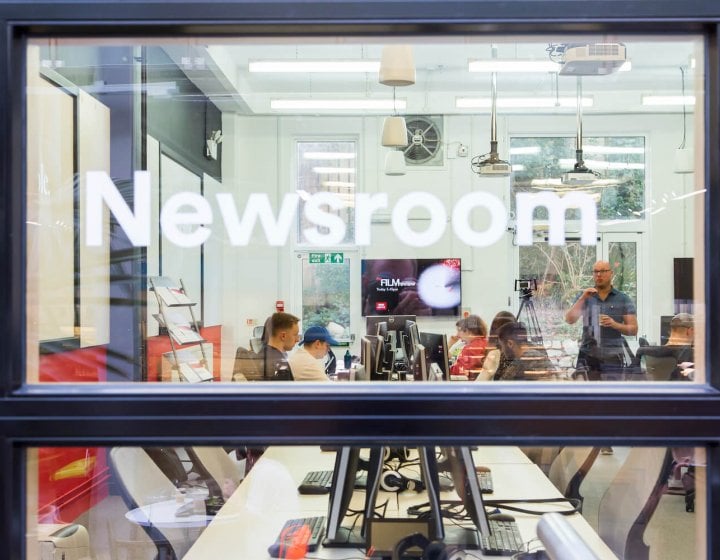
Media Equipment and Facilities
Our industry-level facilities offer everything you need to practice and produce animation, film, TV,...
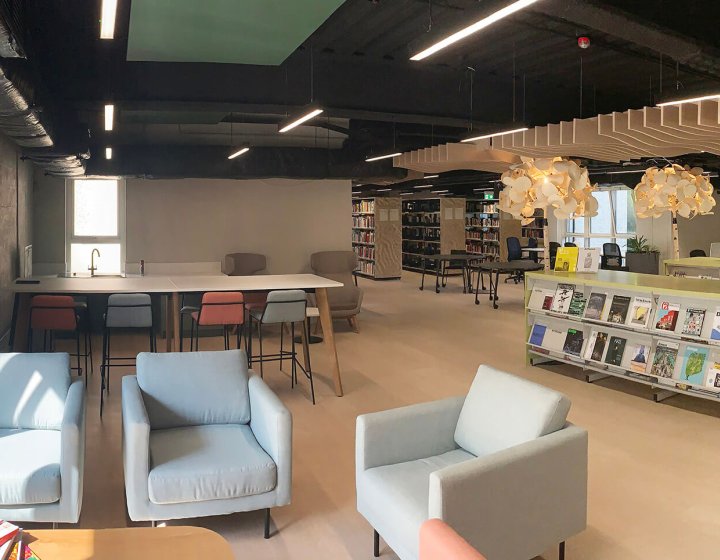
Library Facilities
Offering extensive collections, our two libraries provide a wealth of digital resources, magazines, ...

Sports Centre
Our Sports Centre, on Penryn Campus, includes a spacious gym with up to 90 of the latest, new statio...
Staff
You’ll learn from a variety of industry professionals who have worked for globally recognised agencies and companies including VMLY&R, RAPP and NetBooster. Our team strongly believe in the importance of applying research, creativity and problem-solving skills to real-world settings to build sustainable futures for industry and society. You’ll be able to take advantage of our partnerships with agencies like Droga 5, Ogilvy, M&C Saatchi, Poke, VCCP, AMV BBDO, and Wunderman Thompson.
Some members of staff only teach on specific modules, and your course might not feature every staff member who teaches on the course.
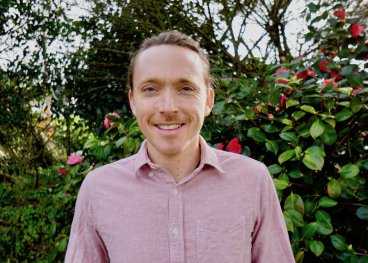
Jon Paget
Lecturer
Jon's love of marketing started when he met an eccentric and brilliant lecturer whilst studying for ...
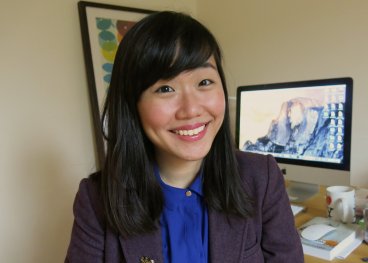
Dr Cui Su
Head of Advertising
After her boss at Young & Rubicam told her 'you're the best account handler I've ever had but go...
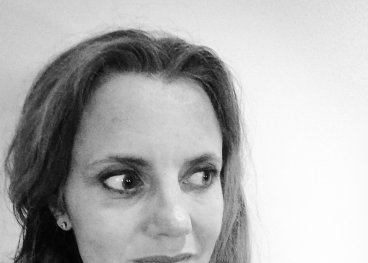
Lucy Cokes
Senior Lecturer, Creative Advertising
Lucy is a Senior Lecturer at Falmouth University, School of Communications. She has been working in ...

Dr James Branch
Senior Lecturer, Design Strategy
James is a lecturer and researcher specialising in design education. He holds a doctorate from Lough...

Joel Ferguson
Course Leader, Creative Advertising
After studying multimedia design and branding, Joel began his career by starting the agency, OTA Dur...

Got a question about this course?
If you want to know more about the course structure, our application requirements or what our graduates have gone on to achieve, our friendly course team is here to help.
Chat to JamesStories from our community
Explore student projects, graduate successes, staff news and industry insights
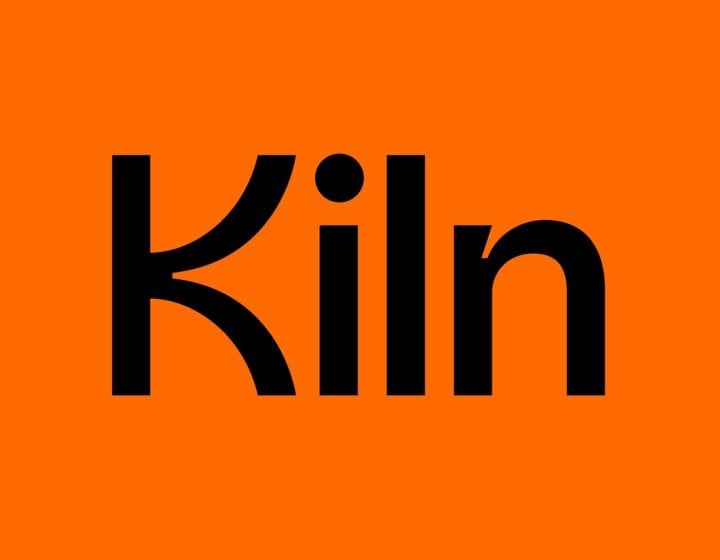
Studio Kiln: the Falmouth alumni with global clients
25 April 2025
Nathan Smith and Charlie Hocking met by chance in a shared workspace and quickly realised they had a...

Journalism student lands new role with London Daily News
23 April 2025
Maisie Milward’s enthusiasm for writing has led to her securing work as a writer for London Daily ...

Embarking on a new academic adventure as a mature student
22 April 2025
Hello curious readers and future students! As a mature student stepping back into the academic world...
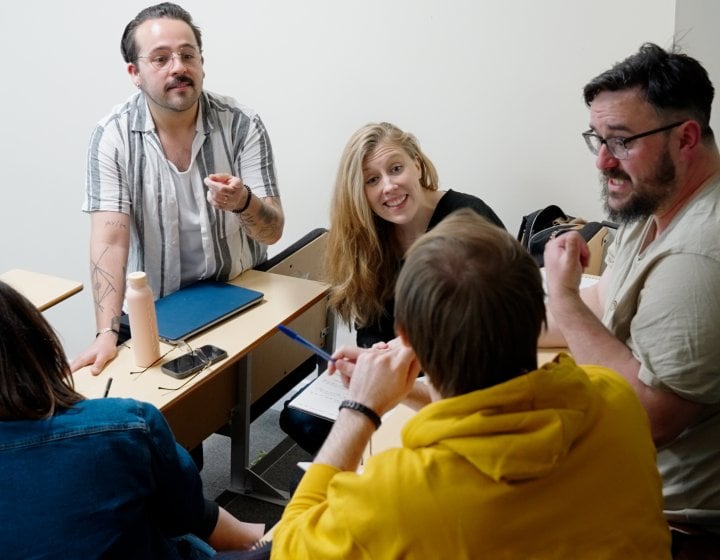
Meet our online Screenwriters
17 April 2025
Falmouth's established Writing for Script & Screen MA (Online) course has garnered a passionate and ...
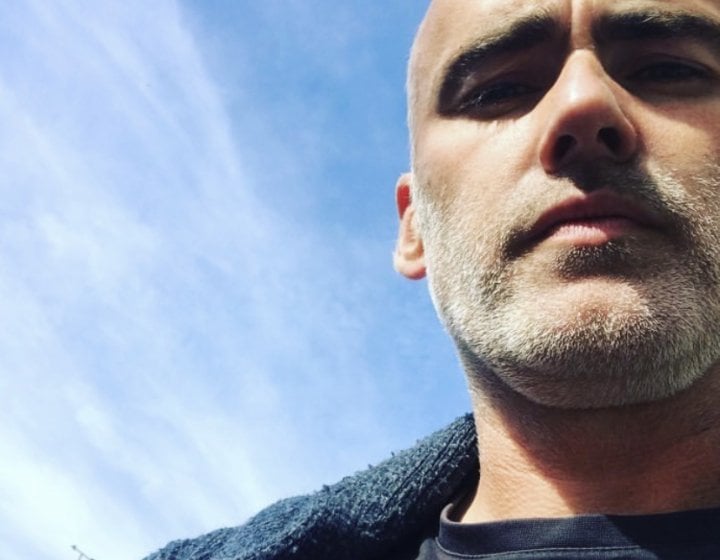
Why I chose to study Creative Writing online
14 April 2025
Hi, my name is David and I’m currently studying an online degree in Creative Writing.
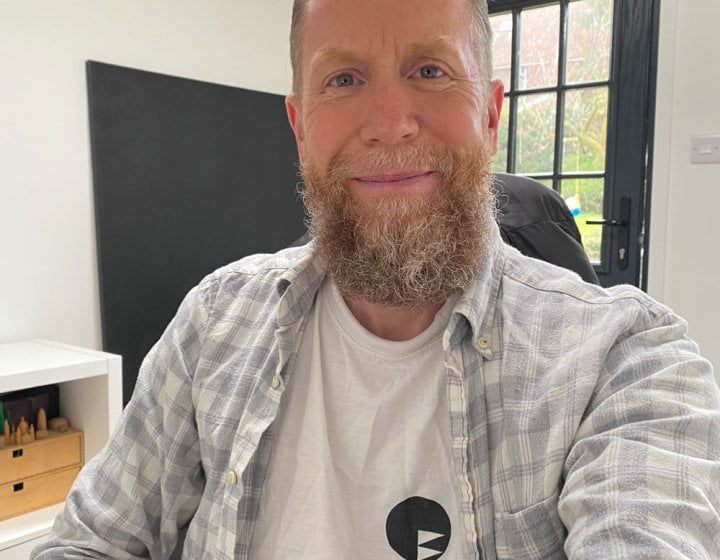
Simeon Berends on a career shaped by curiosity
01 April 2025
When Simeon Berends walked through the doors of a local radio station as a teenager, he was hoping f...

“Have a strong idea at the heart of every creative project,” says James Flint
25 March 2025
After graduating from the Graphic Design BA(Hons) in 2012, James Flint got a lucky break as an inter...

Illustration graduate redraws future in games industry
14 March 2025
Originally enrolled in Falmouth’s Illustration BA(Hons) course, Thomas soon realised that his pass...

Exploring the Future of Gaming with Ryan Norrington
14 March 2025
We’re excited to welcome Ryan Norrington, Creative Director at Metavision, as a guest speaker for ...
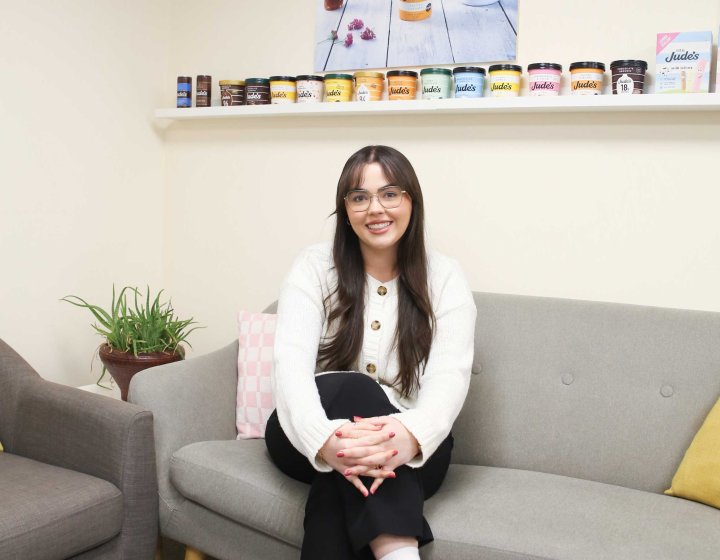
Graduate Spotlight: Charly Richards, Associate Brand Manager at Jude’s Ice Cream
24 February 2025
For Marketing and Digital Communications MA (Online) graduate Charly Richards, her dedication to lea...

Prussia Cove inspires Falmouth students on weekend writing retreat
17 February 2025
Third-year students on Falmouth’s undergraduate writing and journalism courses recently gathered a...
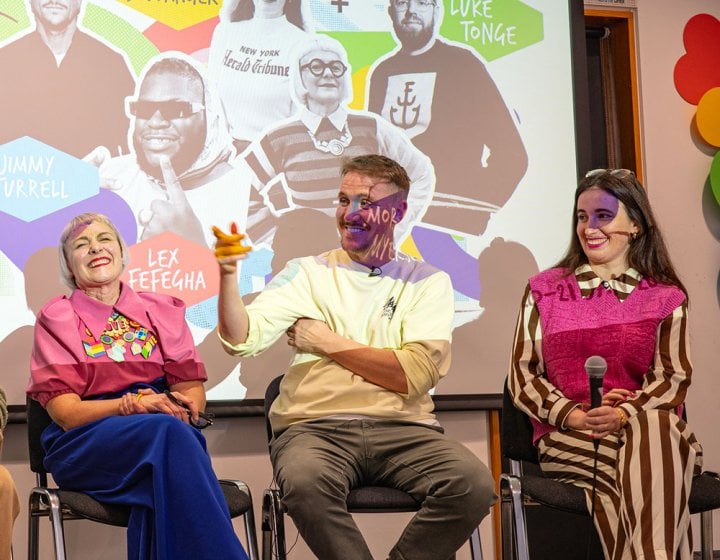
Design advice from five sector-leading creatives
13 February 2025
Students from across our Graphic Design BA(Hons) community recently had the chance to hear the uniqu...

Q&A with Graphic Designer, George Sutton
12 February 2025
George Sutton is a practicing designer - and alumni of Graphic Design BA - with an eye for cross-sec...

‘Design is Play’ Symposium: A Look into our Collaborative Graphic Design Event
10 February 2025
A group of innovative and engaging graphic designers came to Falmouth this January as part of an ins...

Falmouth lecturer publishes new poetry book
07 February 2025
In Damage Limitation, a poetry book in the form of a zine, published by zimZalla, Senior Lecture...
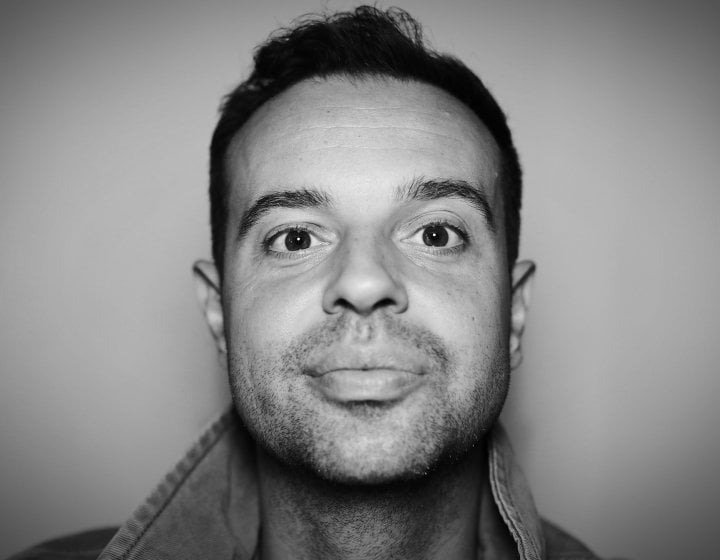
Screenwriting graduate’s short film ‘Going’ makes waves at UK film festivals
29 January 2025
Screenwriter and script consultant Brad Brookes has received numerous accolades for his work since g...

How to get the most out of Screenwriting Competitions
23 January 2025
For many screenwriters, completing a script is a significant milestone - and rightly so. But once th...
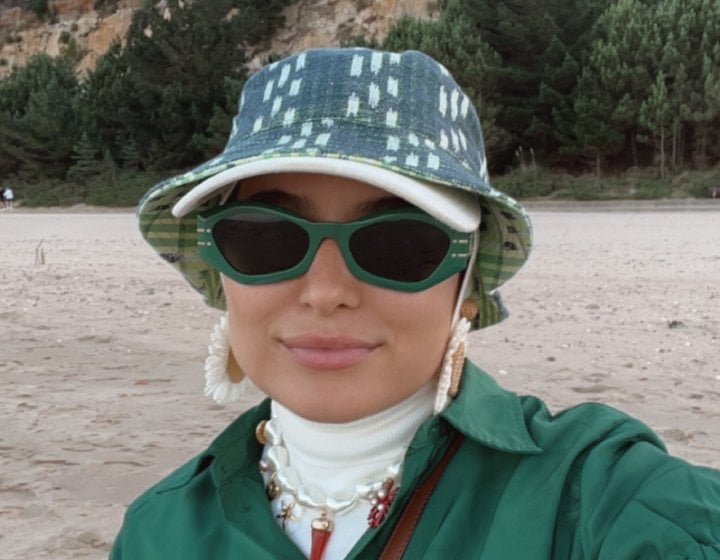
Why I chose to study Graphic Design online
21 January 2025
We chatted to Graphic Design MA (Online) student Dalal Elsamannoudi about her interest in design, he...

Graduate Anouska Sears: “Design truly has no limits”
06 January 2025
After working and gaining experience at various creative agencies, graduate Anouska decided to switc...

Journalism graduate’s cancer documentary wins short film award at Cannes
17 December 2024
Journalism and Creative Writing BA graduate Tavie Carey’s compelling documentary won the best shor...
Careers
As a Marketing Communications graduate you could become:
- Brand manager
- Marketing executive
- Copywriter
- Content creator
- Account executive
- Consultant
- Public relations specialist
- Market researcher
- Social media manager
- Communications strategist

With businesses growing their online presence, writers are being hired as copywriters, PR officers and content creators to help brands communicate with their audiences.
What can you do with a Business, Marketing or Events degree?
How to apply
Ready to apply for 2025?
You can apply for our undergraduate degrees via UCAS. You'll need our university UCAS code (F33) as well as your course code (which you'll find on your course page) for your application.
| Course route | UCAS code |
|---|---|
| Course routeMarketing Communications BA(Hons) three year degree | UCAS codeN592 |
| Course routeMarketing Communications BA(Hons) with Integrated Foundation Year | UCAS codeFY33 |
| Course routeMarketing Communications BA(Hons) with professional placement | UCAS codePY50 |

Application advice & interview information
Go to ToolkitFor starting your studies in 2025
UK applications: 29 January 2025 (for equal consideration)
Applications after the 29 January will be considered on a first-come, first-served as long as there are places available. Apply for this course now.
International fee payers
International fee payers can apply throughout the year. But we recommend applying as early as possible, to make time for visa and travel arrangements.
We consider all applications on their own individual merit and potential. We invite all applicants to an interview day or audition to give them the opportunity to demonstrate this along with what inspires and motivates them in their field. Applicants will also be able to show their portfolio or give a performance depending on the course. We welcome applications from all subject backgrounds, whether you’ve specialised in STEM, the arts or humanities.
Course routes & entry requirements
BA/BSc(Hons) three year degree: 104 – 120 UCAS Tariff points
BA/BSc(Hons) four year degree with professional placement: 104 – 120 UCAS Tariff points
BA/BSc(Hons) four year degree with Integrated Foundation Year: 80 – 120 UCAS Tariff points
Check the title of your course to see if it's a BA or BSc award. UCAS Tariff points will primarily be from Level 3 qualifications such as but not limited to A-levels, T Levels, a BTEC/UAL Extended Diploma or a Foundation Diploma.
For applicants whose first language is English we require you to have or be working towards GCSE English Language Grade 4 (C), or equivalent.
If English is not your first language you will need to meet the same standard which is equivalent to the IELTS Academic 6.0 overall score, with at least 5.5 in Reading, Writing, Speaking and Listening. We accept a range of in country equivalencies and approved tests.
If you need a student visa to study in the UK, you may need to take a recognised language test. You can read our English Language Requirements for more information.
Fees, costs & funding
Tuition fees
| Annual tuition fee | Student |
|---|---|
| Annual tuition fee£9,535 per year | StudentFull-time UK |
| Annual tuition fee£17,950 per year | StudentFull-time EU/international |
| Annual tuition fee£1,905 per professional placement year | StudentFull-time UK and EU/international |
| Annual tuition fee£5,760 per Integrated Foundation Year | StudentFull-time UK |
| Annual tuition fee£17,950 per Integrated Foundation Year | StudentFull-time EU/international |
| Annual tuition fee | Student |
|---|---|
| Annual tuition fee£9,250 per year | StudentFull-time UK |
| Annual tuition fee£17,950 per year | StudentFull-time EU/international |
| Annual tuition fee£1,850 per professional placement year | StudentFull-time UK and EU/international |
| Annual tuition fee£9,250 per Integrated Foundation Year | StudentFull-time UK |
| Annual tuition fee£17,950 per Integrated Foundation Year | StudentFull-time EU/international |
Tuition fees for September 2026 will be confirmed in summer 2025.
Tuition fees are set annually and are subject to review each year. The University may therefore raise tuition fees in the second or subsequent years of a course, in line with inflation and/or the maximum permitted by law or Government policy. Students will be notified of any changes as soon as possible.
The figures above don't include accommodation and living costs
Typical course costs
- £400-£1,500 - A laptop will be an essential piece of equipment along with a reliable broadband connection
- Adobe Creative Suite - you may be eligible for discounted licenses through Adobe's education pricing
- Microsoft Office annual subscription
- £50-£100 - Printing costs for exhibitions depending on nature of your work
- £600 - compulsory study trips
- £600 - optional study trips
If you need to bring equipment or materials with you, these will be outlined in your Welcome Letter
Additional typical course costs for Integrated Foundation Year pathway
- £250 for materials
- A laptop/desktop computer
- Adobe Creative Suite
To engage in the digital learning activity, although you will be able to access IT suites on campus, you will benefit from a laptop to access the platforms and tools we use. Depending on your subject, you may need a specific type of computer. If you're unsure about what you might need, please contact our course advisors.
Funding
For information about funding available, please visit our student funding pages.
Ask a student
What better way to find out about life at Falmouth University than by asking our current students?
From course details and academic support, to the social scene and settling in, our students are ready and available to answer any questions you might have. Simply set up your account, send them a question and they'll get back to you within 24 hours.
Similar courses

Visual Communication BA(Hons) (Online)
Get ahead in the vibrant, ever-evolving field of visual communications with this exciting online cou...

Creative Writing BA(Hons) (Online)
Whether you dream of penning novels, writing for games, creating compelling digital campaigns or wri...
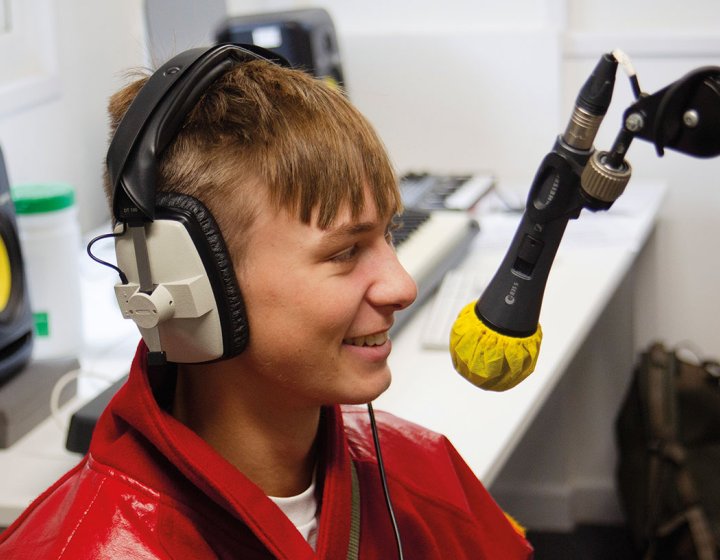
Media Production BA(Hons)
An exciting and market-driven fusion of filmmaking, advertising and journalism, this Media Productio...

Business & Marketing BSc(Hons) (Online)
Become a skilled, confident, ethical and future-ready business and marketing professional with this ...

Work by Hannah Mittelstaedt
Commercial Photography BA(Hons)
From creating photographs and films for high-end advertising and marketing campaigns to producing vi...
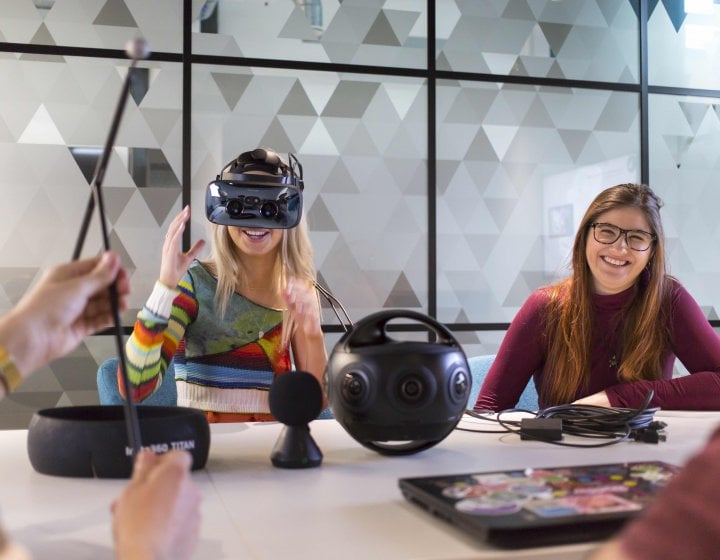
Business & Digital Marketing BSc(Hons)
Prepare yourself for a career in the fast-paced and ever-evolving world of business and digital mark...

Fashion Marketing BA(Hons)
Blend your flair for communication and eye for fashion into a successful career as a fashion markete...
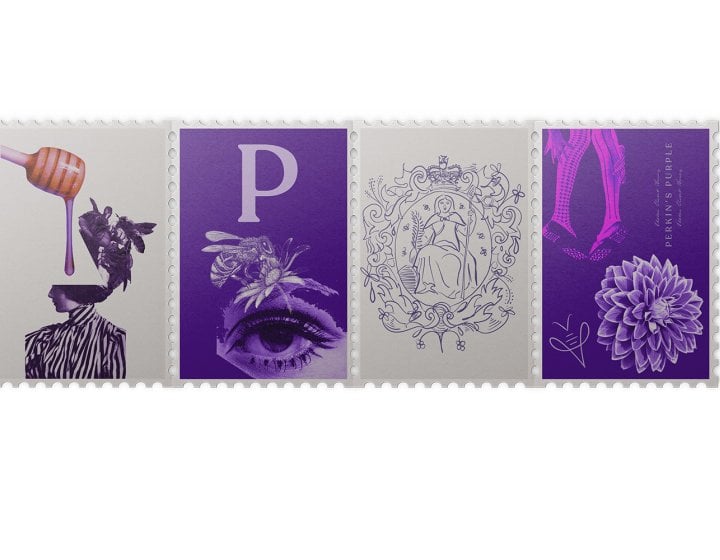
Graphic Design BA(Hons)
Graphic Design is one of the most versatile visual disciplines, embracing words and pictures, form a...

Creative Advertising BA(Hons)
Turn your ideas into powerful advertising campaigns with impact.
Open Days and events
From visiting campus to online application advice, get all the information you need about joining our creative community.
Find an event
70%say staff value students views and opinions about the course
Data for courses in Marketing at Falmouth University
85%of students say teaching staff have supported their learning well.
Data for courses in Marketing at Falmouth University
95%in work or doing further study 15 months after the course.
Data for courses in Marketing at Falmouth University
70%say staff value students views and opinions about the course
Data for courses in Marketing at Falmouth University
85%of students say teaching staff have supported their learning well.
Data for courses in Marketing at Falmouth University
95%in work or doing further study 15 months after the course.
Data for courses in Marketing at Falmouth University
70%say staff value students views and opinions about the course
Data for courses in Marketing at Falmouth University
85%of students say teaching staff have supported their learning well.
Data for courses in Marketing at Falmouth University
95%in work or doing further study 15 months after the course.
Data for courses in Marketing at Falmouth University
